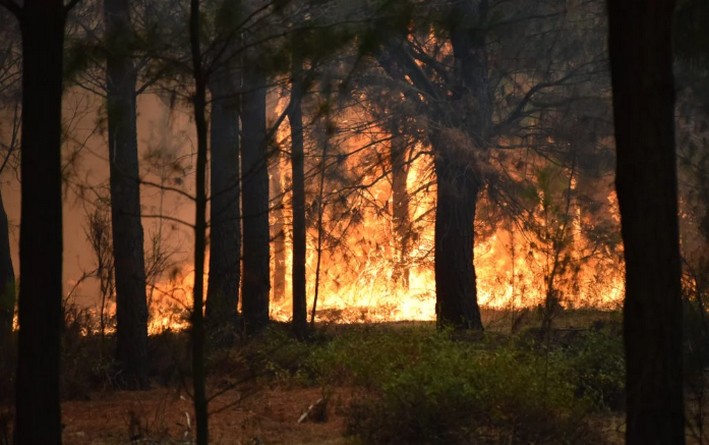Union leaders José Miguel Stegmeier and Julio Torres Cuadros question the effectiveness of the wildfire prevention law, arguing that it fails to adequately address the intentionality behind the fires.
The president of the Biobío Agricultural Society (Socabío), José Miguel Stegmeier, and forestry engineer Julio Torres Cuadros, a member of Futuro Madera and executive secretary of the Chilean College of Forestry Engineers, criticized the legislative proposal aimed at preventing wildfires.
According to the leaders, the initiative—presented by the government a year ago—does not effectively pursue those responsible for intentional fires, as it fails to strengthen police resources. Torres added that it also imposes ineffective and demotivating obligations on forest landowners, discouraging plantations through public policy.
Stegmeier emphasized that "it is necessary to insist on this point, which we have already raised before the Senate Agriculture Committee." He added that "the law will be dead letter and unfair to landowners if intentionality is not considered. Without this key factor, prevention and control efforts will remain incomplete." The leader stated that including this aspect would allow for more realistic public policies.
Another important point, according to Socabío's representative, is patrol efforts. Stegmeier stressed that it is "essential to equip our Police, Prosecutor's Office, and Judiciary with preventive, control, and punitive tools." He also highlighted the importance of "properly training firefighting teams and equipping them, even with military support."
INTENTIONAL WILDFIRES
Strengthening safety measures for firefighters, according to Stegmeier, must be based on "the criminal and even terrorist intent behind the large rural and urban wildfires in the country."
Meanwhile, forestry engineer Julio Torres Cuadros, in an opinion column, argued that "fires are not natural acts; there are people behind them, and they are not the focus of this law." In his analysis of the bill, Torres stated that "preventive actions targeting vegetation fuel are key but do not address the criminal problem linked to fires." He also questioned whether "this will incentivize clearing vegetation to allocate land for real estate, whether formal or informal."
Torres concluded that "the obligations imposed on landowners in this bill are neither fair nor effective." He expressed that "we can only hope that the new authority in charge of the National Forestry Corporation receives the necessary support to introduce substantive modifications."
The forestry engineer also criticized the bill, stating that "in its current version, it is based on a flawed diagnosis of what is truly needed to tackle wildfires." He added that he hopes modifications arise from "a good-faith dialogue, without caricaturing opposing positions."
Source:La Tribuna







Comments (0)
No comments yet. Be the first to comment!
Leave a comment